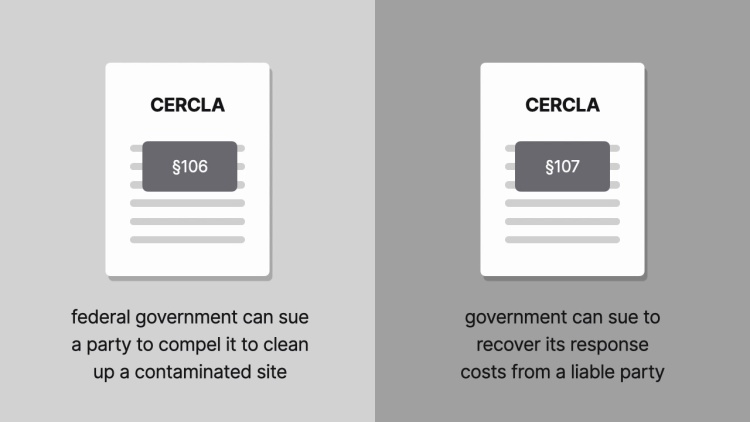Cooper Industries, Inc. v. Aviall Services, Inc.
United States Supreme Court
543 U.S. 157 (2004)
- Written by Tammy Boggs, JD
Facts
Cooper Industries, Inc. (Cooper) (defendant) owned and operated four aircraft-engine-maintenance sites (the sites) until 1981, at which time Cooper sold the sites to Aviall Services, Inc. (Aviall) (plaintiff). Aviall operated the sites for years. Thereafter, Aviall discovered that both Aviall and Cooper had contaminated the sites with hazardous substances. Without needing to file any judicial or enforcement action, the Texas Natural Resource Conservation Commission directed Aviall to clean up the sites, and Aviall incurred $5 million in clean-up costs. Aviall sued Cooper in district court under § 113(f)(1) of the Comprehensive Environmental Response, Compensation, and Liability Act (CERCLA) seeking contribution. Aviall originally pleaded an additional § 107(a) claim against Cooper for cost recovery, but the claims became combined in later pleadings into a single CERCLA claim. On summary judgment, the court found that Aviall was asserting only a § 113(f)(1) claim against Cooper and relief was unavailable to Aviall under that section because Aviall had never been sued under § 106 or § 107 of CERCLA. Following an en banc hearing, the Fifth Circuit reversed, concluding that a potentially responsible party (PRP) may obtain contribution under § 113(f)(1) regardless of whether the PRP has been sued under § 106 or § 107. The Supreme Court reviewed the matter.
Rule of Law
Issue
Holding and Reasoning (Thomas, J.)
Dissent (Ginsburg, J.)
What to do next…
Here's why 907,000 law students have relied on our case briefs:
- Written by law professors and practitioners, not other law students. 47,100 briefs, keyed to 996 casebooks. Top-notch customer support.
- The right amount of information, includes the facts, issues, rule of law, holding and reasoning, and any concurrences and dissents.
- Access in your classes, works on your mobile and tablet. Massive library of related video lessons and high quality multiple-choice questions.
- Easy to use, uniform format for every case brief. Written in plain English, not in legalese. Our briefs summarize and simplify; they don’t just repeat the court’s language.





